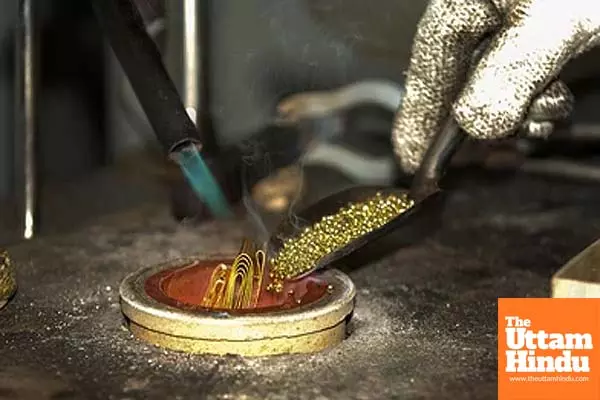
The secret behind the perfect gold Jewelry: inside the refining process

New Delhi (The Uttam Hindu): Gold refinery processing plants play a key role in transforming raw gold into high-quality metal that meets industry standards. These plants are essential for sectors such as jewelry, electronics and finance, as they refine and purify gold for commercial use, supporting the global gold trade. The refining process begins with raw gold, which often contains impurities like silver and copper. The goal is to remove these impurities and create gold with a purity of 99.5% to 99.99%. Specialized techniques are used in these refineries to ensure the gold is pure, valuable and ready for trade.
The gold refining process involves several steps. First, raw gold is collected and melted to remove large impurities. Then, two main chemical methods are used for refining: the Aqua Regia Process, where nitric and hydrochloric acids dissolve the gold and separate it from impurities, and Electrolysis where gold is dissolved and then re-deposited as pure gold onto a cathode using electricity. After refining, the gold is melted and shaped into bars or ingots for trade. Finally, the gold undergoes testing, called assaying, to ensure it meets legal purity standards.
Since the refining process involves dangerous chemicals and high temperatures, safety is a top priority. Refineries follow strict environmental regulations and use technologies like closed-loop systems to reduce waste and minimize pollution. These refineries are crucial to the global economy, helping countries convert their gold reserves into money and ensuring industries have access to high-quality gold. They also support financial stability as gold continues to be a trusted form of value worldwide. In conclusion, gold refinery processing plants are an important part of the gold supply chain using advanced methods to turn raw gold into valuable products that help sustain industries and financial systems around the globe.

